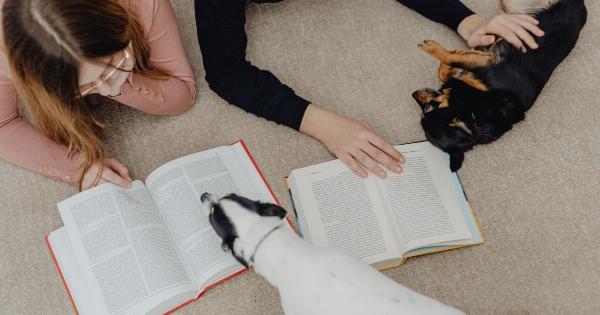Dogs are loyal companions to many people. They are faithful, playful, and affectionate. Dogs are trained for many reasons, such as to keep them safe, to give them confidence, and to help them interact better with their owners and other dogs.
But is training essential for dogs of any age? One common myth is that older dogs no longer benefit from training. In this article, we’ll examine this myth and determine whether it’s true.
Training is Essential for Dogs of All Ages
Training is widely recognized as being essential for dogs, no matter their age. While it may be easier to train a puppy than an older dog, training is still important and beneficial for mature dogs as well.
Dogs never stop learning; their brains are always processing information. Therefore, even if your dog is a senior, it is never too late to teach them new things.
Training can help your dog stay mentally and physically stimulated, relieve boredom and anxiety, and maintain their social interactions.
Dogs that receive training are more likely to have better behavior and be well-mannered, which can lead to a happier relationship with their owners. Training can also help dogs maintain their independence, confidence, and individual well-being, even as they age.
The Benefits of Training Mature Dogs
Training can help mature dogs in several ways. Here are some examples:.
1. Improve Physical and Mental Health
Training requires physical activity, which is great for your dog’s health. It can also improve mental health by increasing their confidence and reducing anxiety.
2. Strengthen the Bond with Their Owner
Dogs are social animals and training sessions are an opportunity for them to spend quality time with their owners. This can help strengthen the bond between the dog and their owner, which is essential for a happy and healthy relationship.
3. Maintain Good Behavior
Training can help reinforce good behavior in mature dogs and discourage bad behavior. It can also prevent common behavior problems, such as biting, excessive barking, and digging, from developing.
4. Adapt to Life Changes
Training can help mature dogs adjust to changes in their environment, such as moving to a new home, or being introduced to new people or animals. It can also help them adapt to new routines, such as a change in feeding or walking schedules.
5. Engage in New Activities
Training can introduce mature dogs to new activities and skills, such as agility, obedience, and nose work. These activities are not only fun for the dog, but they can also help build confidence and maintain good physical and mental health.
Training Techniques for Mature Dogs
When training mature dogs, it’s important to bear in mind that they may have more deeply ingrained habits that can be difficult to break. Here are some tips for training mature dogs:.
1. Start Slowly and Gradually
Don’t expect your mature dog to learn everything at once. Start with basic skills, such as sit, stay, and come, and gradually build up to more advanced skills.
2. Use Positive Reinforcement
Positive reinforcement is an effective training technique for mature dogs. Reward your dog with treats, praise, and affection when they exhibit good behavior.
Avoid punishment as much as possible, as it can be counterproductive and cause stress and anxiety in your dog.
3. Use Familiarity to Your Advantage
Use your dog’s familiarity with you and your home to your advantage. Practice training in familiar environments and use familiar objects such as their bed or toys as part of the training.
4. Be Patient
Training a mature dog can take longer than training a puppy, but consistency and patience are key. Don’t give up on your dog if they are not making progress as quickly as you’d like.
Conclusion
Older dogs can benefit from training just as much as puppies or young dogs.
Training is essential for dogs of all ages, and it can help mature dogs maintain their mental and physical well-being, strengthen their bond with their owner, maintain good behavior, adapt to life changes and engage in new activities. When training mature dogs, it’s important to start slowly, use positive reinforcement, leverage your dog’s familiarity, and be patient.
So, don’t hesitate to train your mature dog; it’s never too late to teach your dog new tricks!.


























